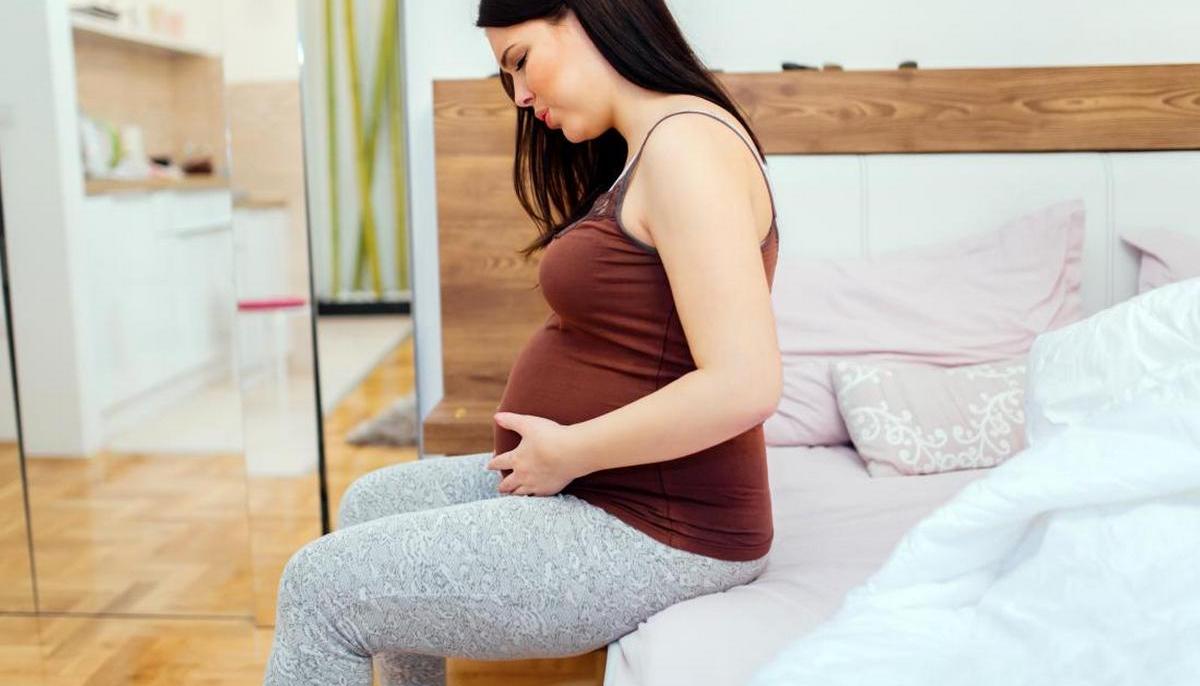Bleeding during pregnancy
Any bleeding during pregnancy, regardless of the trimester, requires evaluation by the gynecologist.
Bleeding is a fairly common symptom in the first trimester of pregnancy. This may indicate a miscarriage or an ectopic pregnancy , and may also be a result of simple changes in the cervix, which may occur during pregnancy (cervical ectropion).
Women often experience bleeding at the time when they should have had their period.
Pain in the lower part of the abdomen, accompanied by bleeding, may imply a problem such as spontaneous abortion or ectopic pregnancy, and it is recommended to contact the doctor or the early pregnancy monitoring unit directly.
One way to check if the pregnancy is well in the early stages is ultrasound. At the same time, the doctor can recommend other additional tests, for example blood tests to check the hormone levels and to obtain a comprehensive picture of the state of health of the mother and the fetus.
Fears and pains
The way you feel at the beginning of pregnancy is unique for every mother-to-be. It is normal to feel good at the beginning of pregnancy, although almost all women feel tired.
- Pain in the lower abdomen , although alarming, can be normal and their appearance does not mean that something bad is happening. They can be caused by trivial things such as stretching ligaments, and simple analgesics (paracetamol in normal doses) help.
- Bowel problems , such as constipation, which is common in early pregnancy, can also cause some pain in the lower abdomen. Women describe at the beginning of pregnancy symptoms similar to premenstrual tension (PMS), for example bloating, symptoms which are also extremely common.
- If you feel stinging or burning when urinating, you may have a bladder infection. These are more common during pregnancy and you should contact your obstetrician or family doctor to recommend a urine test. You may be prescribed antibiotics. If the pain is severe, you should talk to your doctor.
The symptoms that should alert the pregnant woman and for which specialist consultation is required are:
- Headaches that do not improve or worsen over time
- Fainting
- Visual disturbances
- Fever
- Exaggerated swelling of the hands and/or face
- Breathing difficulties
- Chest pain or tachycardia (rapid heart beat)
- Severe nausea and vomiting
- Severe abdominal pain that does not go away
- Vaginal bleeding or other unusual discharges
- Drowsiness and extreme fatigue
- Severe edema, reddening of the skin or pain in the legs or arms
- Stopping or slowing down the baby's movements during pregnancy
- The presence of thoughts of harming yourself or harming the fetus.
Sex during pregnancy
There is no evidence to suggest that it is necessary to stop having sex during pregnancy or that sex can cause miscarriage or other problems in early pregnancy. If the pregnancy is risky, discuss this aspect with the gynecologist.
Maintaining sexual relations will obviously depend on how you feel - sometimes you may not feel comfortable having sexual relations because of bad moods or because of nausea. It is your decision and you should discuss this with your partner.
If there was bleeding at the beginning of pregnancy, women are more worried when it comes to sex. Although there is no evidence that sex can cause miscarriage, it is possible for the specialist to recommend the cessation of sexual relations until the bleeding is stabilized or stopped. This is indicated to reduce both bleeding and worry. Sometimes the bleeding can come from the lower part of the uterus (cervix) and avoiding sexual intercourse for a few days will allow it to balance. If there is bleeding after each intercourse, it is necessary to consult a doctor.
Weight gain
Ideally, both in the case of an underweight and an overweight person, before pregnancy, it is recommended to reach the right weight, in relation to the height. This is recommended to minimize the risks for both the mother and the baby during pregnancy.
Healthy eating and physical exercises during pregnancy are beneficial for both the mother and the child.
On average, the total weight gain should not be more than 22-44 lbs (10-20 kg), overweight women gaining less weight - not more than 19 lbs (9 kg) - than underweight women. Weight gain in the early stages of pregnancy may be minimal, but it will increase steadily, most of it being gained in the last 3 months. Only in the last quarter should the consumption of calories increase - by approximately 200 calories per day.
If the BMI value (body mass index) is over 30, the weight must be managed carefully. Women with a low BMI (<19) should be encouraged to have a healthy diet to minimize growth problems in the child.
All women should take folic acid, ideally before becoming pregnant or immediately after establishing pregnancy and until the end of the first trimester. If the BMI value is greater than 30, 5 mg (prescribed by the doctor) is recommended instead of the lower dose of 400 micrograms. You must also take vitamin D (10 micrograms per day).
Postpartum depression
The increase in awareness of postpartum depression has alerted many health professionals to the possibility that it can be triggered in the early or late stages of pregnancy.
Studies concerning pregnant women have indicated that those with a previous history of mental health problems or social or family problems are exposed to a greater risk of developing anxiety or depression. If you feel that you are becoming anxious or depressed, call your doctor to inform yourself and calm down .
Immediately after birth, the mother is very busy with establishing the new routine. This is a time when the combination of recent birth, changing hormone levels and sleepless nights or restless sleep can make it very emotional.
Sometimes, due to fatigue, crying, upset and increased emotionality also occur. This is very common a few days after the birth of the baby and is called baby blues or pregnancy blues .
There are no serious reasons for concern, nor should you feel ashamed. Many women feel this way. Talk to your partner, family and close friends - they will be eager to help and support you. Your doctor will listen to any concerns you may have. This usually resolves itself fairly quickly.
The development of serious depression after the birth of the baby is very rare, but if the situation worries you, you must make an appointment to be consulted by a doctor.







